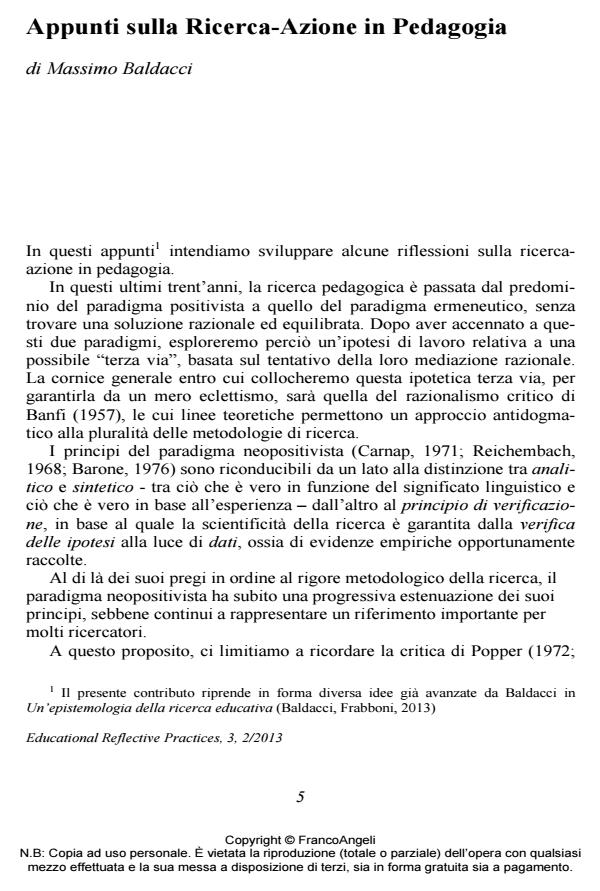Appunti sulla Ricerca-Azione in Pedagogia
Journal title EDUCATIONAL REFLECTIVE PRACTICES
Author/s Massimo Baldacci
Publishing Year 2014 Issue 2013/2
Language Italian Pages 6 P. 5-10 File size 513 KB
DOI 10.3280/ERP2013-002001
DOI is like a bar code for intellectual property: to have more infomation
click here
Below, you can see the article first page
If you want to buy this article in PDF format, you can do it, following the instructions to buy download credits

FrancoAngeli is member of Publishers International Linking Association, Inc (PILA), a not-for-profit association which run the CrossRef service enabling links to and from online scholarly content.
In recent decades, educational research has moved from the dominance of the positivist paradigm to the hermeneutic paradigm, without finding a rational and balanced solution. After a short introduction of these two paradigms, the article aims to outline a working hypothesis concerning a possible "third way" able to define a rational mediation between these two theoretical approaches. This "third way" will be drafted usignThe general framework within which we place this hypothetical third way to guarantee it from a mere eclecticism, that will be of critical rationalism Banfi (1957), whose theoretical lines allow an anti-dogmatic approach to the variety of research methodologies.
Massimo Baldacci, Appunti sulla Ricerca-Azione in Pedagogia in "EDUCATIONAL REFLECTIVE PRACTICES" 2/2013, pp 5-10, DOI: 10.3280/ERP2013-002001